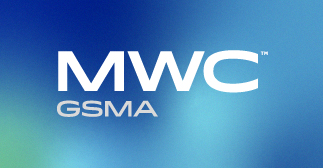

TAIPEI, June 30, 2021 /PRNewswire/ -- According to BloombergNEF's recent study, the need for smarter and greener cities is greater than ever since the focus of city officials has honed in on net-zero carbon goals and COVID-19 impacts. To address worsening pollution, public health, security, and other issues, digital technology can help create more sustainable cities. Examples of such issues and technological solutions were discussed at Mobile World Congress (MWC) Barcelona. With support from Industrial Development Bureau (IDB) of the Ministry of Economic Affairs (MOEA), Taiwan has implemented 223 Smart City projects which make use of various technologies and innovative solutions to improve important aspects of communities, including governance, healthcare, transportation, agriculture and more.
On June 30, 2021, IDB of the MOEA's sponsored session, Taiwan's Best Practices in Smart City, went live at MWC Barcelona. MWC Barcelona is the world's largest mobile exhibition that is usually attended by over 100,000 people, including thousands of exhibitors and 59% of the most senior decision makers in the industry. This year, however, the exhibition will not only be accessible in-person, but also virtually with sessions on-demand and live-streamed.
The session invited 6 speakers with first-hand understanding from different companies and Smart City project areas. Cameo first presented their artificial intelligence (AI) analysis platforms that assist governments concerned with air pollution. This was followed by Coretronic Intelligent Robotics Corporation (CIRC) which uses autonomous drones to improve surveillance of large industrial sites. Taiwan International Development Co. (TIDC) uses geomagnetic senses to reduce traffic by acquiring and sharing real-time parking information. In discussing smart aquaculture, Quadlink shared its solutions for fish farms to mitigate risks from extreme weather and food contamination. Meanwhile, U-Sync uses Human Intelligence (HI) and AI technology to increase productivity in agriculture through digitalization. The session ended with Adymeds which strives to reduce burdens on hospitals and enable remote patient monitoring through integrated medical and Information and Communications Technology (ICT) solutions.
Conversations with the above companies yielded greater understanding of the solutions with real cases and data. The MWC Barcelona session only covers a small number of the many Smart City Taiwan projects, but it demonstrates some of their best practices which could help cities worldwide that are tackling similar issues.
Recording of the session can be accessed here: https://youtu.be/j5R39eh4-4Q
SOURCE Smart City Taiwan
